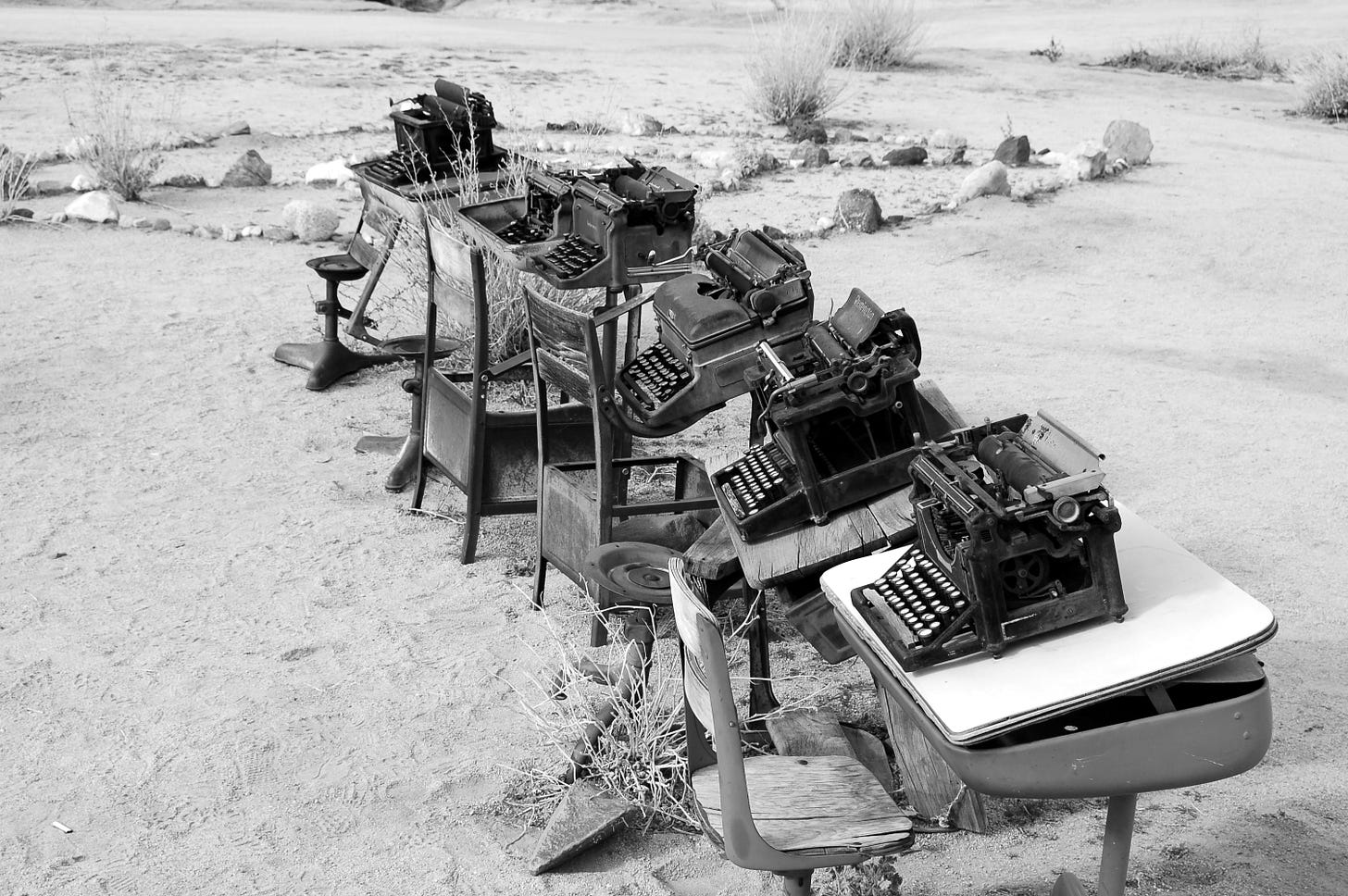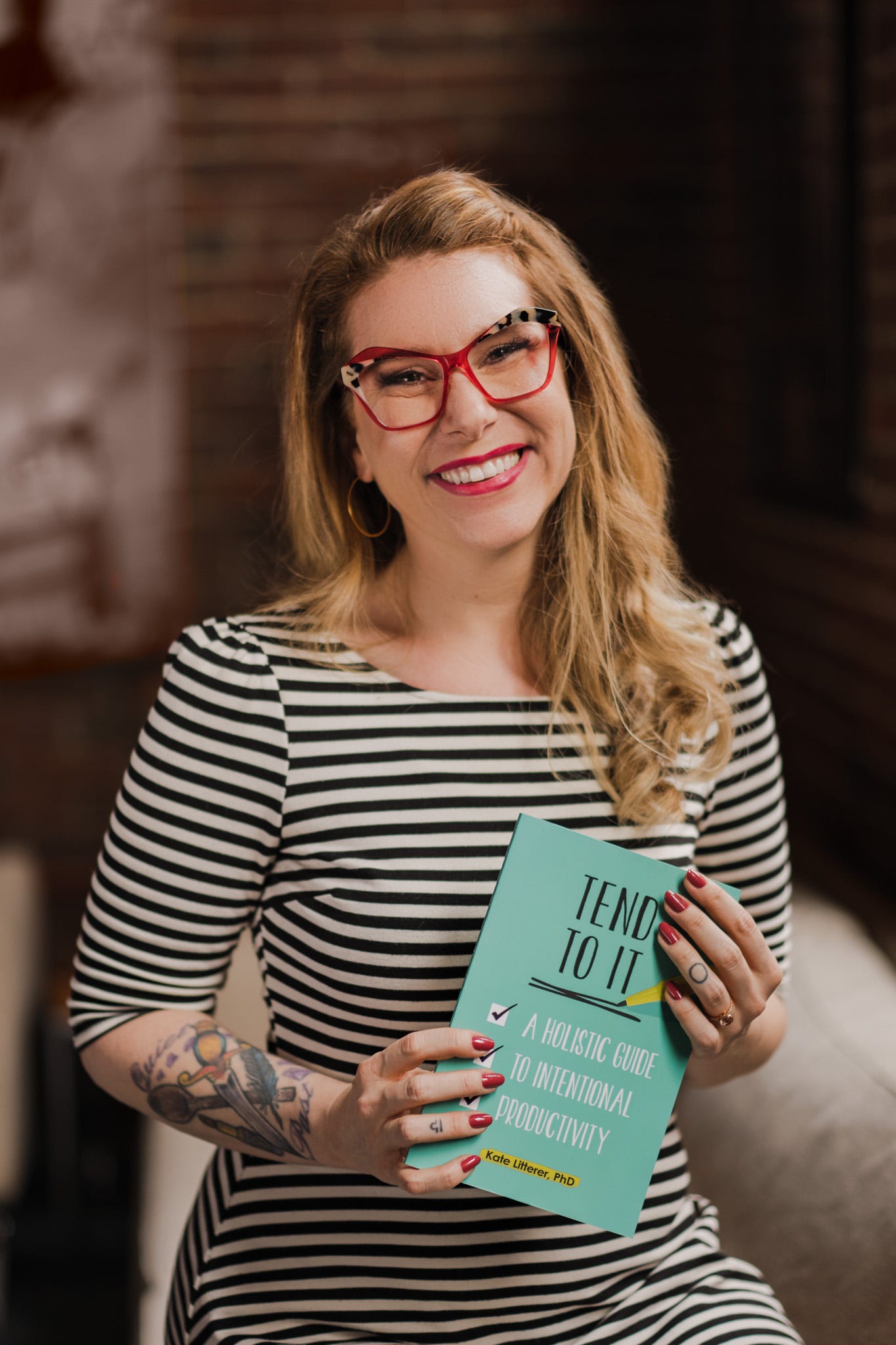You can listen to an audio version of this newsletter above. Please note that this is unedited, there may be some natural stumbles, as I’m recording in my home office. Thank you and enjoy.
If one of the things that is freaking you out right now is a writing goal, I invite you to attend Structure as a Path to Sustainability this Saturday (or sign up to watch the recording on your own time). Dr. Katy Peplin and I will talk through organizing your writing projects and developing productivity approaches that actually feel helpful. Sliding scale rates are available and you can learn more and sign up here.
I’m collecting questions for November’s Q&A. Please ask me anything via this link.
Co-Working is next Monday November 6, 2023 from 10am-1pm ET. You can learn more and access the Zoom link here.
I think it’s fair to say that we’re in a season of stress.
PhD students are hurrying to apply for jobs while also completing their dissertations.
Creative businesses are managing their day-to-days while planning for holiday sales.
Professors are balancing grading with committee work with editing their own research projects for publication.
And if you’re chronically ill, a parent or caregiver, or working a stressful job, completing your personal and professional projects may feel even more challenging.
If you’re working on overlapping goals right now and feel bogged down or overwhelmed, I have a few approaches that might help you find more clarity and momentum. I hope you’ll find today’s approaches helpful.
Write a Brain Dump
When we’re overwhelmed, stressed, or burnt out, we may struggle to mentally track our projects. One of the symptoms of chronic stress is mental fatigue, so it’s no surprise that we may struggle to keep track of our task lists in our brains when we feel overwhelmed. Writing a brain dump allows us to get everything out of our brain and onto the page so we no longer need to remember everything. I suggest skimming your email inbox and your calendar when you write your brain dump so you can jot down everything you need to do. This could be your running to-do list or, when you have a higher energy day, you might schedule tasks into your calendar.
Choose Tasks Based on Your Energy and Time
You can also limit your brain dumps to write a list of every task that you need to complete for a particular project. Once you have a running list, you’ll need to decide what to work on first. If you’re on a deadline, you’ll probably select that task, but if you’re feeling overwhelmed, it may help to select a task based on ease or time.
Here’s an exercise from Tend to It: A Holistic Guide to Intentional Productivity to support you in selecting tasks from your brain-dumped to-do list.
Exercise 10: Make it Achievable with Ease and Time
Look back at your list of steps for your goals (Exercise 7). Each one of these steps should be an individual task, so take some time to break the steps down into sub-tasks if necessary. Then, answer the following questions in your notebook or document. The purpose here is to gain a greater awareness and confidence about the length of time and level of commitment each task will require.
Which tasks will be the quickest to accomplish?
Which tasks will be the easiest to accomplish with my current skill set?
Which tasks will take the longest to complete?
Which tasks will be the most complicated or require the most focus, critical thinking, physical/mental/emotional energy, etc.?
Feel free to rank any of your answers if that is helpful for you: quickest to longest, easiest to hardest, least to most complicated, etc.
Now that you know which tasks will be the easiest, hardest, quickest, and longest, write down some plans for how you want to approach the different tasks. For example, do you want to save the easy tasks for when you want a quick win? Do you want to schedule the complicated tasks for early in the day? Do you want to work on your long tasks a little each week for a month? Use your notebook or document to brainstorm approaches that will compassionately set future you up for success.
Make Use of Free Resources
Since 2018, Thrive PhD has hosted a month of free resources for academics called AcWriMo, styled after National Novel Writing Month, or NaNoWriMo. Because academic writing can be so much more varied than writing the draft of a novel, and because academics normally don't need any more excuses to heap pressure on themselves, Thrive PhD frames it as a month to reconnect and deepen writing practices. There are workbooks, tracking dashboards, skill-building opportunities, themed weeks of focus, and more - and all for free. This year, all of the content is meant to help you reconnect with the fun and maybe even momentum of your writing practice. You can learn more here.
What about you?
What processes or approaches help you to progress on your projects when you feel overwhelmed?
Curiosities
This section of my letters is for things that made me say “hmmm” or “wow!” recently.
I was fascinated by the post “Freeing the Woman in Britney” by
. I'm a big fan of Substacks that provide cultural analysis combined with personal narrative, and I can’t wait to see what Menon shares next on .I took a Yin Yoga class recently on Zoom and it was a perfect combination of restorative and energizing. My yoga journey has been limited to Iyengar Yoga with the errant Flow class thrown in the mix, and my usual studio doesn’t seem to offer many Yin Yoga classes. If you have any recommendations for virtual, live Yin Yoga classes, please send them my way!
I’ve been trying to engage more on LinkedIn and welcome you to follow me there!
I hope to see some of you this Saturday at Structure as a Path to Sustainability! If you have any questions, feel free to email me directly at kate@katehenry.com.
Take good care and we’ll talk soon,
Dr. Kate














I've recently identified one strategy that has been helping me keep up with my masters thesis research. Sometimes "breaking the seal" of a task is the hardest part for me. This is especially true with reading. If I think that I need to find the perfect focus opportunity to begin my reading it will simply never happen. Additionally, I spend a lot of time commuting bc I live in NYC and go to school in a different borough than where I live. So I've started reading on the train. This is obviously just about the worst environment you could imagine for focused attention, and its true that sometimes I simply can't manage it. But for some reason, even if I only get a few paragraphs or pages into a reading it makes it easier to dive back into it later. So its not so much that I am trying to get as much done as possible by trying to make my commute productive, rather I'm just setting myself up to be able to get back into the reading later on. Thanks for your posts, Kate!
Yess yoga in Minneapolis does almost all of their classes hybrid, so you can join virtually! I moved out of Minneapolis in 2019 but still do yoga with Lucia & others there because I love them so much.